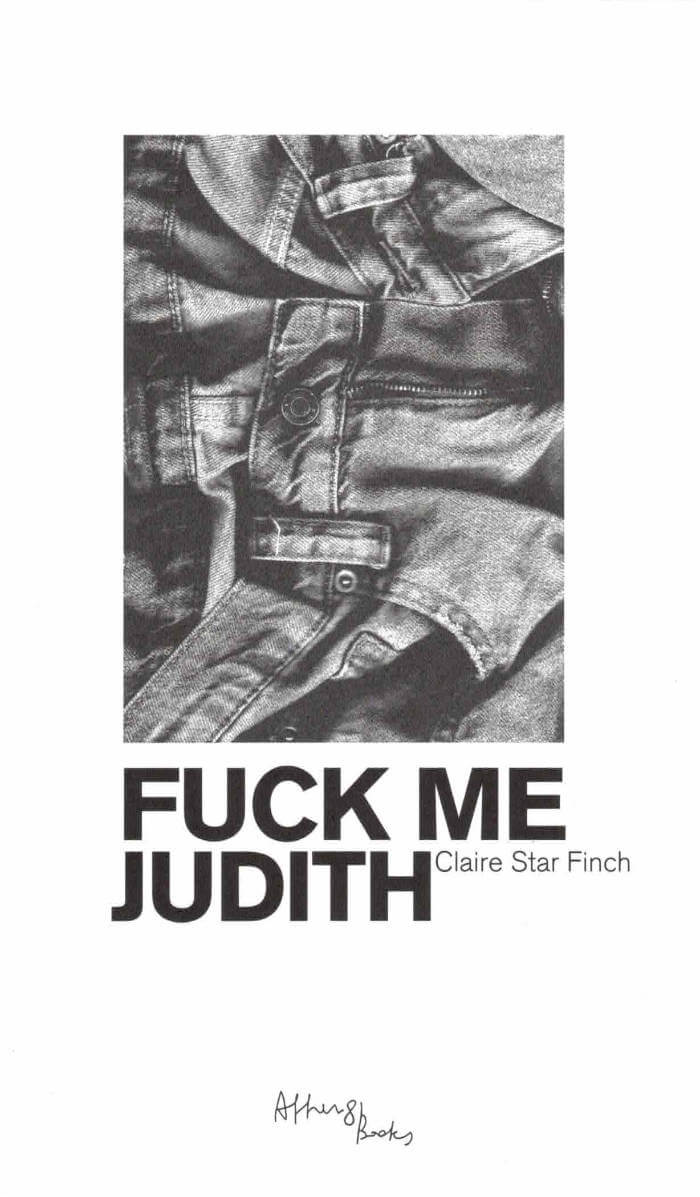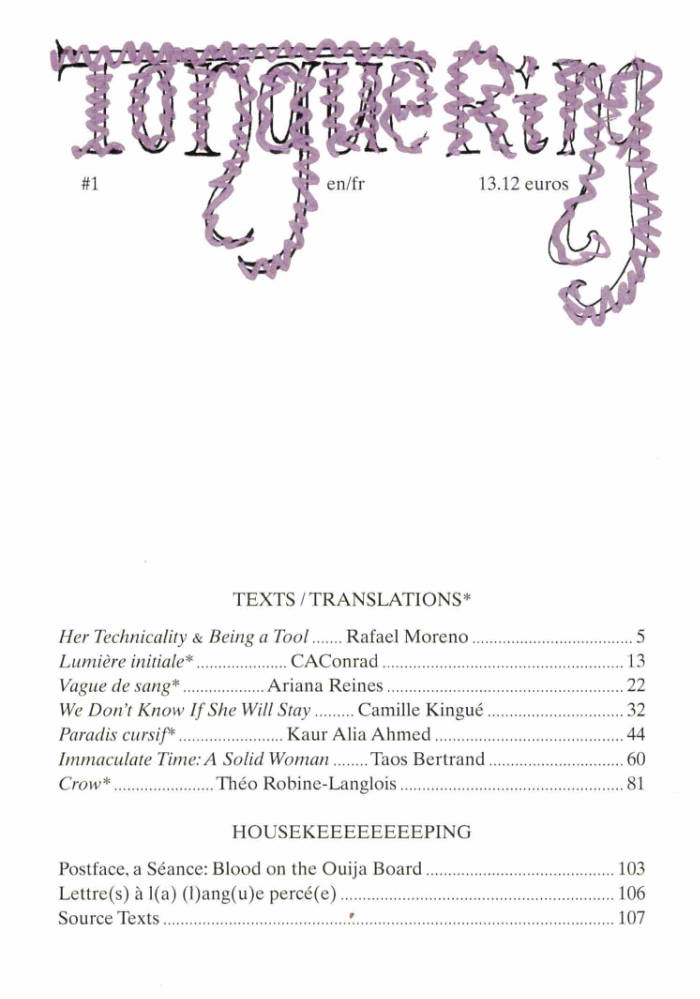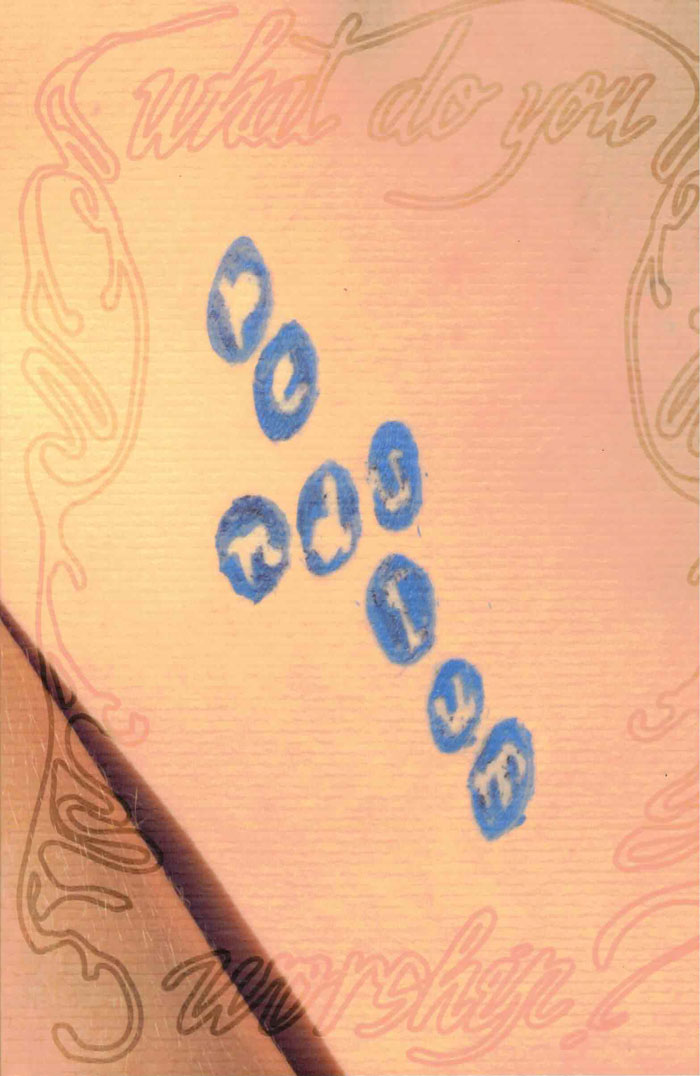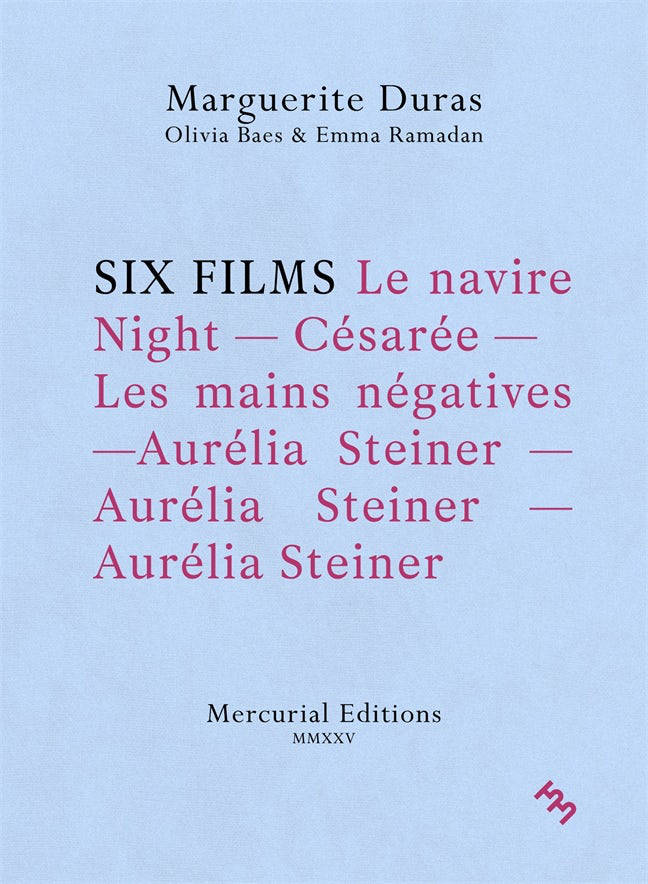
Fuck Me Judith
In Claire Star Finch’s first novel, love and the void question each other in action.
Judith, an academic celebrity, and Wendy, a slightly less famous academic celebrity, fall in love. They break up. In her ensuing grief, Wendy finds herself in a pornographic, epistolary haze that slumps toward the narrative. Fueled by the only things that cut through the pain—sex and democratic theory—Wendy takes us along on her wild ride toward self-actualization.
Claire Star Finch is a Paris-based experimental writer & performer. Their literary performances and hybrid ficto-theories are regularly presented in art spaces, both as part of their solo work and with the collective RER Q. Their research centers on themes like dildos and vomit, defining these objects as forms of emancipatory literary technologies.
They published in French the experimental fiction Crache dans ma bouche puis crache dans mon autre bouche (Les Petits Matins, 2024).
Design by Victoire Le Bars







